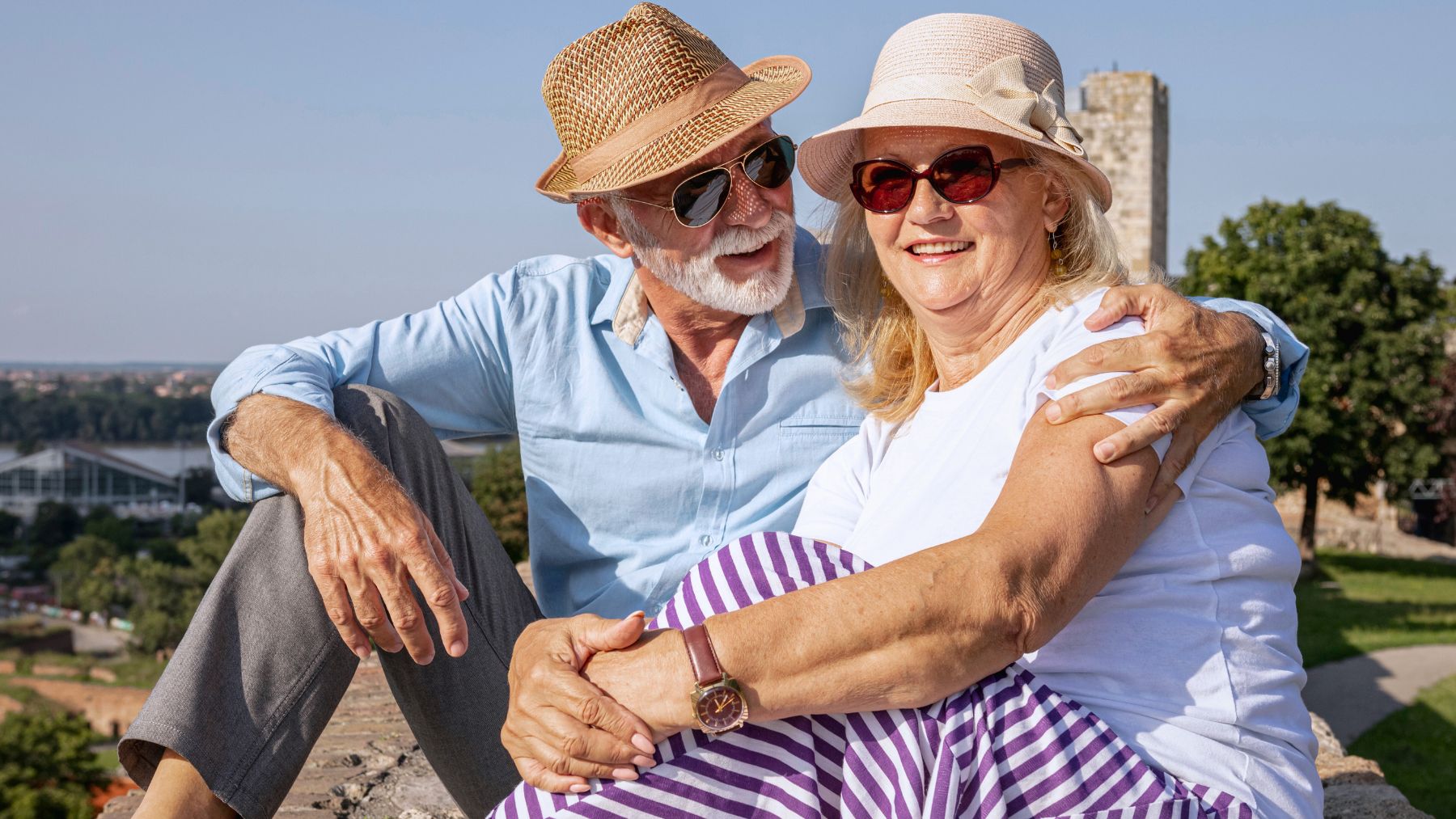When it comes to summer safety, most people think of water bottles and sunscreen first. They’re important, no doubt. But there’s another item that’s just as essential for older adults heading outside in hot weather, and many tend to forget.
For adults over 65, exposure to UV rays without proper eye protection can increase health risks and even lead to permanent vision damage. In the following sections, we’ll explain why UV-protective sunglasses are a must for seniors in the summer heat, and we’ll also walk through other key safety steps for staying well when temperatures rise.
Grab your UV-protective sunglasses this summer
Eyes are especially vulnerable during summer. UV rays can damage the cornea, retina, and the sensitive tissues around the eyes. Seniors already face age-related eye changes—like reduced tear production, cataracts, or macular degeneration—that make them more sensitive to light and heat. Sun exposure without protection can speed up these conditions or trigger symptoms like blurred vision, dryness, and irritation.
UV-protective sunglasses help prevent long-term issues like cataracts and slow the progression of vision loss. Good sunglasses block 100% of both UVA and UVB rays, and wraparound styles are even better because they protect the sides of the eyes and shield delicate skin around the eyes, which is more prone to sun damage.
Wearing UV-blocking sunglasses also helps prevent headaches, squinting, and fatigue, which can sneak up fast when you’re outdoors in bright sunlight. For seniors with some medical conditions, even short sun exposure can trigger discomfort or more serious symptoms. That’s why wearing the right pair of sunglasses is a safety step, right up there with staying hydrated and applying sunscreen.
Other ways seniors can stay safe in the heat
While UV-protective sunglasses are a smart addition, they’re only one part of a broader summer safety plan. Here’s how to stay protected during the heat:
- Drink water consistently: Don’t wait to feel thirsty. Seniors often have a weaker thirst response, so it’s important to drink water regularly throughout the day. Herbal teas and electrolyte drinks can help too, but make sure to avoid caffeine and alcohol.
- Stick to cool zones: Spend the hottest part of the day indoors or in air-conditioned places. If your home doesn’t have AC, visit cooling centers, libraries, or shopping malls.
- Dress for the weather: Wear lightweight, loose-fitting clothes made from breathable fabrics like cotton. Stick to light colors and add a wide-brimmed hat for extra protection.
- Adjust your schedule: Plan errands or walks for early morning or late evening when it’s cooler. Avoid going out during peak heat hours, usually from 11 a.m. to 4 p.m.
- Watch for symptoms: Signs of heat exhaustion include dizziness, nausea, heavy sweating, or weakness. If you notice these, move to a cool place and hydrate immediately.
- Keep an emergency plan: Have a friend or family member check in daily during heatwaves. Make sure your phone is charged and easy to reach in case you need help quickly.
The summer heat doesn’t have to keep you indoors, but it does require a bit more care. UV-protective sunglasses offer vital eye protection, and combining them with other heat safety steps can help you stay healthy and comfortable all season.

